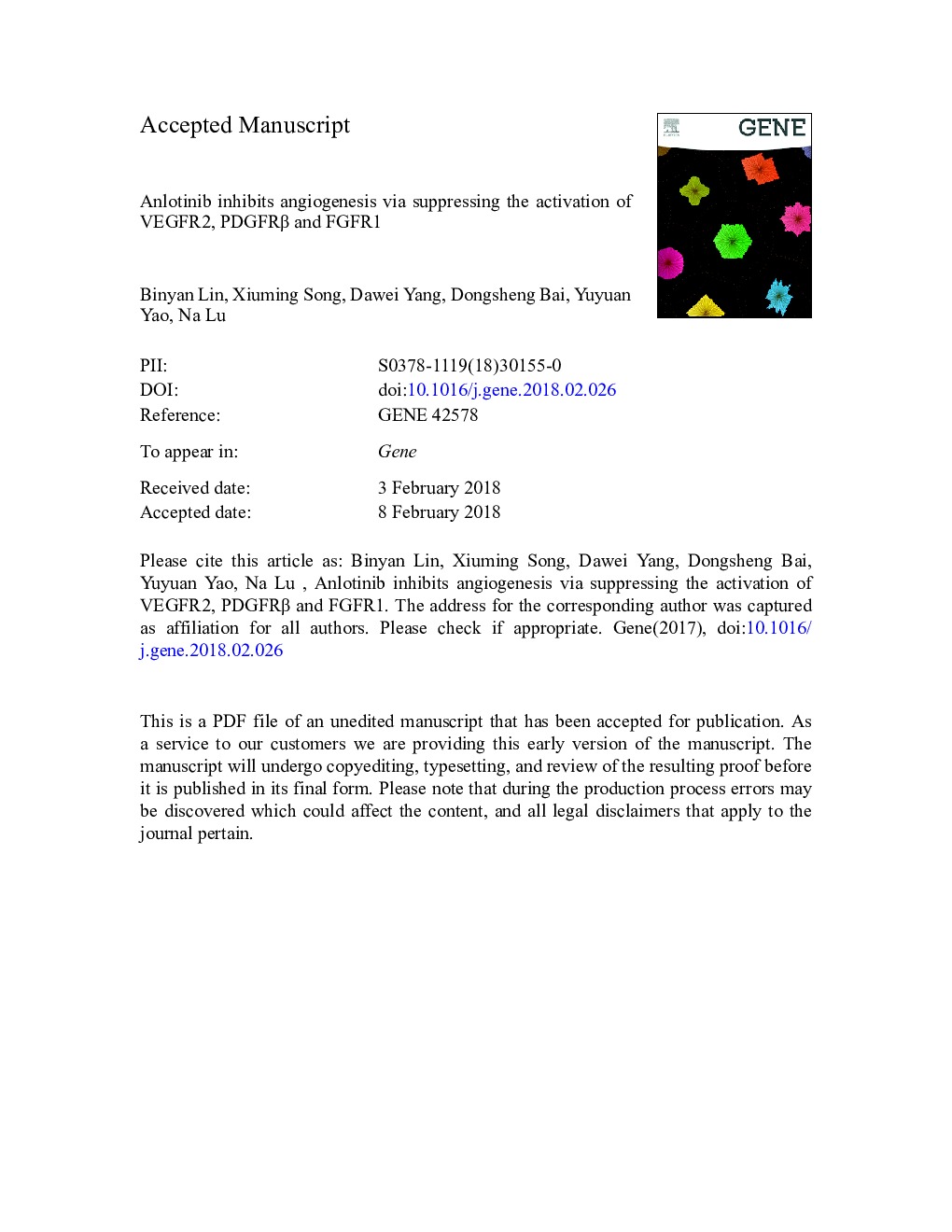| Article ID | Journal | Published Year | Pages | File Type |
|---|---|---|---|---|
| 8645362 | Gene | 2018 | 33 Pages |
Abstract
Tumor cells recruit vascular endothelial cells and circulating endothelial progenitor cells to form new vessels to support their own growth and metastasis. VEGF, PDGF-BB and FGF-2 are three major pro-angiogenic factors and applied to promote angiogenesis. In this research, we demonstrated that anlotinib, a potent multi-tyrosine kinases inhibitor (TKI), showed a significant inhibitory effect on VEGF/PDGF-BB/FGF-2-induced angiogenesis in vitro and in vivo. Wound healing assay, chamber directional migration assay and tube formation assay indicated that anlotinib inhibited VEGF/PDGF-BB/FGF-2-induced cell migration and formation of capillary-like tubes in endothelial cells. Furthermore, anlotinib suppressed blood vessels sprout and microvessel density in rat aortic ring assay and chicken chorioallantoic membrane (CAM) assay. Importantly, according to our study, the anti-angiogenic effect of anlotinib is superior to sunitinib, sorafenib and nintedanib, which are three main anti-angiogenesis drugs in clinic. Mechanistically, anlotinib inhibits the activation of VEGFR2, PDGFRβ and FGFR1 as well their common downstream ERK signaling. Therefore, anlotinib is a potential agent to inhibit angiogenesis and be applied to tumor therapy.
Keywords
Related Topics
Life Sciences
Biochemistry, Genetics and Molecular Biology
Genetics
Authors
Binyan Lin, Xiuming Song, Dawei Yang, Dongsheng Bai, Yuyuan Yao, Na Lu,
